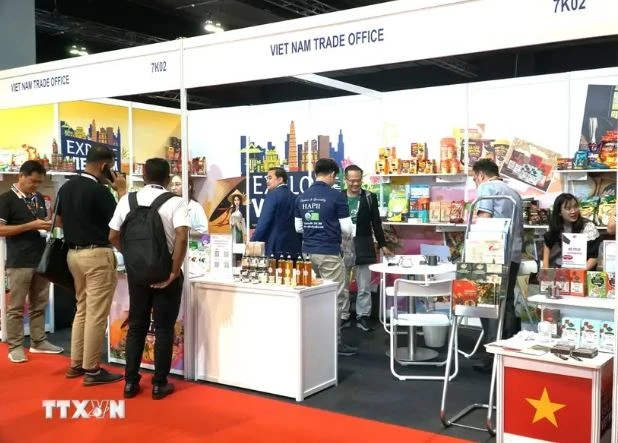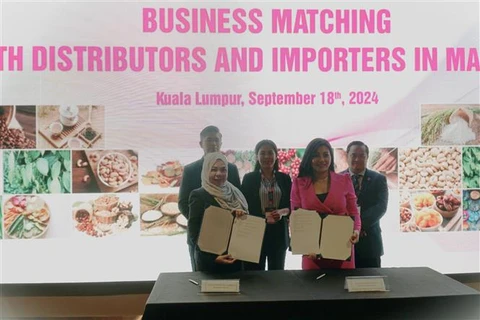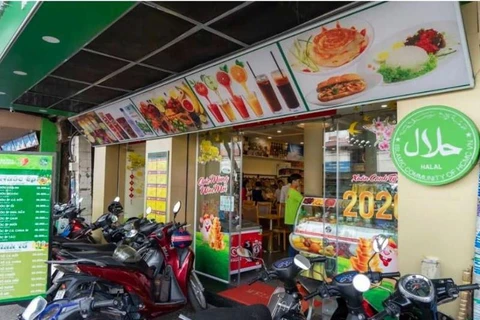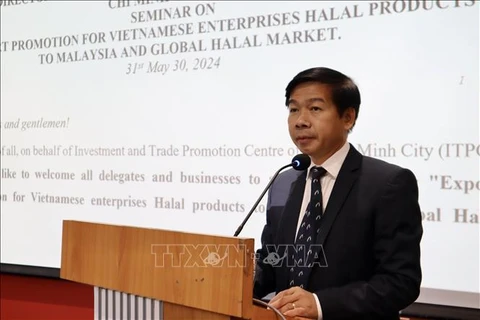
Cairo (VNA) – With a large population and a rapidly growing Halal food market, the Middle East-North Africa (MENA) region is a potential market for Vietnamese businesses.
According to a report by Coherent Market Insights - a global market intelligence and consulting organisation, the MENA Halal food market is forecast to grow at 9.15% between now and 2030. The MENA Halal food market size is expected to increase from 192.6 billion USD in 2022 to over 228 billion USD by 2024.
The robust growth of this market is driven by two key drivers. The first driver is the growing Muslim population across MENA which is standing at around 500 million and expected to exceed 600 million by 2030.
Secondly, the young Muslim generation has a growing preference and demand for packaged and ready-to-eat Halal products.
Vietnamese Ambassador to Egypt Nguyen Huy Dung said that Egypt is one of the most populous Muslim countries in the world, with over 106 million people, of which about 90% are Muslims. Up to now, Egypt's Halal food regulations are still relatively open, in which Egyptian Halal food quality management agencies only control standards for livestock, poultry and products made from livestock and poultry.
Egypt is temporarily postponing the Halal certification requirement for dairy products until December 31, 2025.
From 2026, it will begin applying Halal standards to imported dairy products. The ambassador said that this is a very good opportunity for Vietnamese businesses to exploit and bring goods to Egypt in the near future.
Meanwhile, Saudi Arabia is the largest Halal food market in MENA with an expected market size of 60.03 billion USD by 2024. The market is forecast to reach a yearly growth of 3.8% in the 2023-2029 period.
Vietnamese Ambassador to Saudi Arabia Dang Xuan Dung said that with a population of more than 34 million people and Islam as the national religion, all food in the Saudi Arabian market is Halal food.
With a desert climate, Saudi Arabia's Halal food production only meets a small part of domestic demand. Therefore, it has to import food to meet 85-95% of its need.
Dung said that Vietnamese enterprises have many opportunities to export Halal food products and food production materials to the Saudi Arabian market, particularly lamb, goat, beef, processed seafood, instant noodles, beverages, confectionery, or cosmetics.
He noted that Saudi Arabia is a market with large consumption power, and is also a gateway for transiting Halal food to other Middle Eastern countries such as Kuwait, Jordan and Bahrain.
Currently, Vietnam only has one Halal certification agency recognised by Saudi Arabia.
Dung added that some Vietnamese Halal products have entered the Saudi Arabian market but face difficulties in verifying Halal certification.
Moreover, Vietnamese enterprises have to compete with major peers, particularly those from India, Brazil and the US./.






















